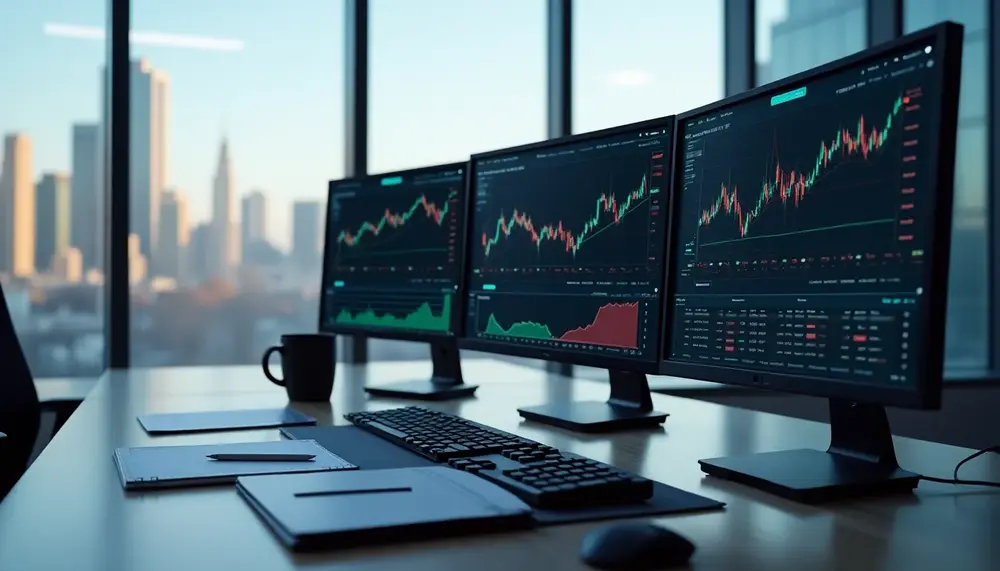Ask Price
Ask Price
Understanding the 'Ask Price'
When you step into the field of trading, one term that you'll come across frequently is the 'Ask Price'. The ask price, also referred to as the 'offer price', is an essential concept to grasp, particularly for individuals who wish to engage in buying and selling securities.
The Definition of 'Ask Price'
The 'Ask Price' refers to the lowest price a seller is willing to accept for a security, such as a stock or a commodity. It is the price at which a seller offers to sell an asset to a buyer. The ask price therefore represents the supply side within the supply and demand economy of trading.
How Does the 'Ask Price' Apply in Trading?
In practical terms, when you're looking at a stock quote in real time, the ask price is the price that you would have to pay if you wanted to purchase the asset. It's important to note that the ask price is typically higher than the 'Bid Price' - the highest price a buyer is willing to pay for a security. The difference between the ask price and the bid price is known as the 'spread'.
The Significance of 'Ask Price'
The ask price plays a key role in determining the liquidity and volatility of an asset. A narrow spread, meaning a small difference between the bid and ask price, often indicates high liquidity and low volatility, making buying and selling quicker and easier. Conversely, a wide spread indicates low liquidity and high volatility, which can result in slower transactions and higher risks.
Ask Price: A Key Component of Trading
To sum it up, understanding the 'Ask Price' can provide clarity about the supply and demand dynamics of a particular security, assist you in making informed trading decisions, and aid in identifying potential investment opportunities. As with all aspects of trading, a robust understanding of this concept necessitates study, practice, and experience.
Blog Posts with the term: Ask Price

Understanding Market Depth: The Battle of Supply and Demand Market Depth Analysis is a crucial tool for traders and investors to understand the supply and demand dynamics of the financial market. By analyzing the order book, traders can gain insights into...

The article explains the concept of liquidity in the cryptocurrency market and its importance in trading. It discusses how liquidity affects the speed of transactions, the stability of prices, and the overall trading experience. It also provides pros and cons...

Altcoin trader fees, including maker and taker fees, significantly impact profitability and vary across exchanges with different fee structures. Traders should compare these costs on various platforms to optimize for lower transaction expenses while considering trading volume discounts and overall...

High-Frequency Trading (HFT) is a method of trading that uses powerful computers to execute a large number of trades at incredibly fast speeds using algorithmic trading techniques. HFT provides liquidity to the market and can result in better bid-ask spreads,...

The article introduces finanzen.net Zero, an online trading platform with a user-friendly interface and tools for both novice and experienced investors to manage investments efficiently. It highlights the platform's features such as a wide selection of assets, advanced charting tools,...

Crypto trading strategies encompass a range of approaches from short-term scalp trades to long-term holds, relying on market indicators and risk management techniques like stop-loss orders for informed decision-making. Diversification across assets and strategies is essential in managing risks and...

justTrade is an online trading platform that offers a user-friendly interface, real-time market data, and advanced analysis tools for both beginners and seasoned traders. It provides zero commission fees, diverse financial instruments including stocks, ETFs, cryptocurrencies, robust security measures, and...

Trading Ahead involves market makers prioritizing their own trades over clients', undermining investor interests, and is distinct from front-running or insider trading; regulation like FINRA Rule 5320 aims to maintain fairness in the markets by preventing such practices....

DeFi Quant Trading combines finance and technology by using complex mathematical models for trading decisions in the decentralized blockchain-based financial landscape, offering strategies like mean reversion, momentum trading, statistical arbitrage, and market making. Essential tools include data analytics platforms, algorithmic...

